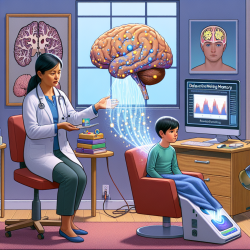The fast-paced world of education and healthcare can be overwhelming for practitioners. Stress levels are high, and the pressure to deliver quality care while managing personal well-being is a constant challenge. However, emerging research suggests that mind-body skills can be a game-changer in reducing stress and enhancing both personal and professional life.
The Power of Mind-Body Skills
The research article "Mind-body skills groups for medical students: reducing stress, enhancing commitment, and promoting patient-centered care" highlights the transformative impact of mind-body techniques. These skills not only reduce stress but also foster self-awareness and promote a holistic approach to patient care.
The Center for Mind-Body Medicine has developed a model that has been successfully implemented in medical schools across the United States. This model includes a variety of techniques such as meditation, biofeedback, guided imagery, and relaxation exercises. These practices have shown to improve mental health by decreasing depression and anxiety while increasing resilience and overall well-being.
Implementing Mind-Body Techniques in Practice
Practitioners looking to enhance their skills can benefit greatly from integrating mind-body techniques into their routine. Here are some practical steps to get started:
- Meditation: Incorporate daily meditation practices to center your mind and reduce stress. Even a few minutes each day can make a significant difference.
- Guided Imagery: Use visualization techniques to create a mental space of calmness and clarity. This can be particularly useful before engaging with patients or students.
- Biofeedback: Utilize biofeedback tools to become more aware of physiological responses to stress. This awareness can help in developing strategies to manage stress effectively.
- Relaxation Techniques: Practice deep breathing exercises or progressive muscle relaxation to alleviate tension and promote relaxation.
The Benefits of Mind-Body Skills
The benefits of incorporating these techniques are profound. Practitioners report feeling more connected to their work and patients, experiencing less burnout, and maintaining a healthier work-life balance. Furthermore, these skills encourage a patient-centered approach by fostering empathy and understanding.
The Role of Self-Care in Professional Development
A crucial aspect of mind-body skills is the emphasis on self-care. By prioritizing their own well-being, practitioners can provide better care for others. This approach not only enhances personal health but also sets a positive example for colleagues and patients alike.
A Call to Action
If you're interested in exploring these techniques further or implementing them in your practice, consider attending workshops or training sessions offered by organizations like The Center for Mind-Body Medicine. Engaging with these resources can provide valuable insights and support as you integrate mind-body skills into your professional life.










